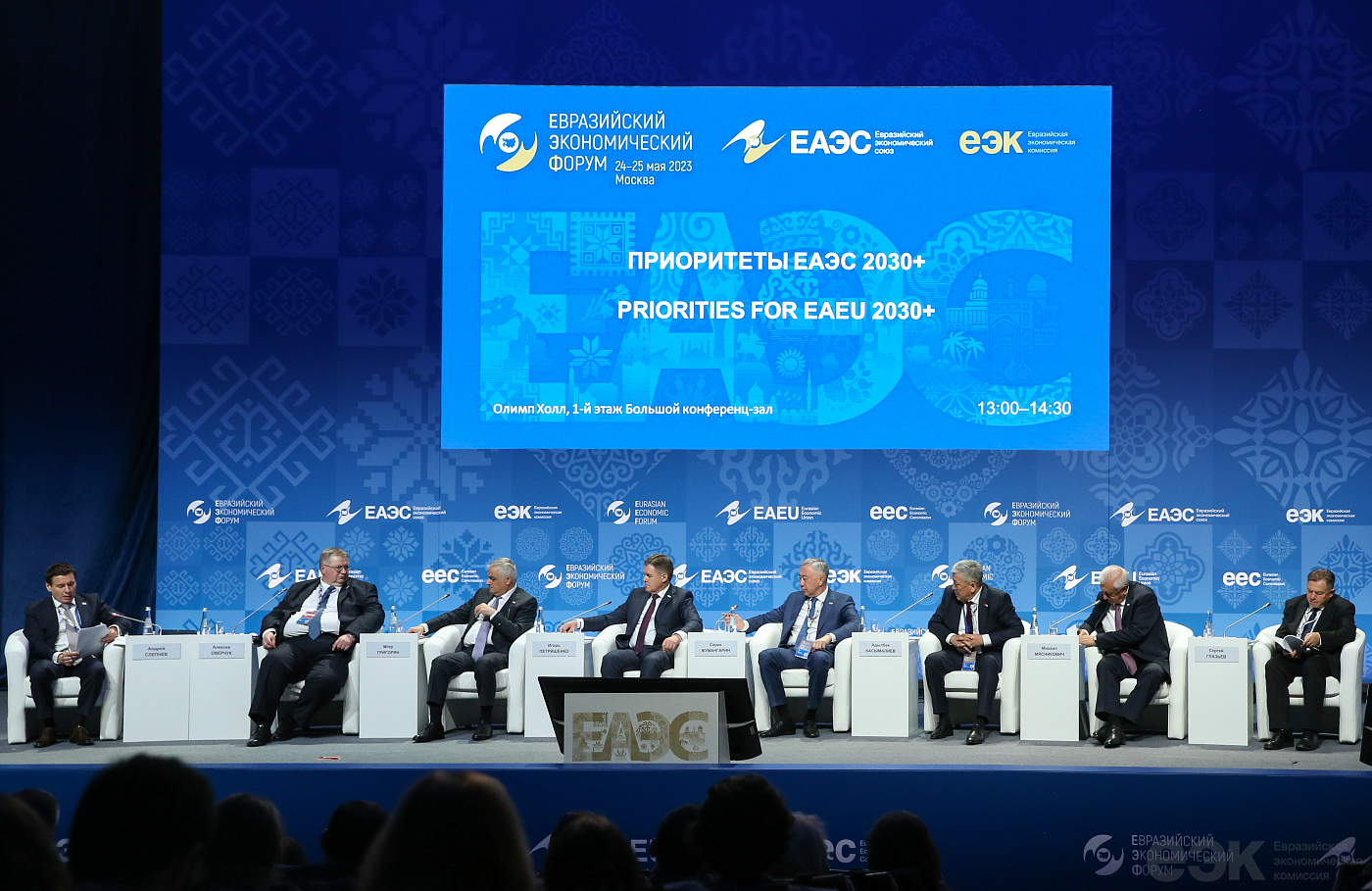News
Digitalization and creation of joint investment projects to become EAEU priorities
Throughout its existence, the Eurasian Economic Union has shown its viability, which is demonstrated by growing economic indicators after the coronavirus pandemic; however, for a higher efficiency, the EAEU countries need to focus on digitalization and the development of joint investment projects. Such conclusions were drawn by the representatives of the Member States and experts following the session "Priorities for EAEU 2030+" held as part of the 2nd Eurasian Economic Forum.
"We, the Eurasian Economic Union, have proved our viability," emphasized Alexey Overchuk, Deputy Prime Minister of the Russian Federation, Chairman of the Eurasian Economic Commission Council. "We have a low level of unemployment, a good self-sufficiency in resources, energy security, a low inflation rate and our own independent payment system. We have a common communication language, which is our tremendous advantage. All this enables the EAEU to fulfill all its potential here and transform our Union into a secure Eurasian macroregion. This is what the priorities of the Russian chairmanship aim at."The development of the Eurasian integration was also favorably viewed by Andrey Slepnev, Minister in charge of Trade of the Eurasian Economic Commission: "In general, our integration has shown its relevance. Both trade and investment are on the rise. Last year, another record was achieved – the volume of mutual trade reached almost 83.5 bln US dollars with a 14% increase vs. 2021. Agriculture rose by more than 30%. We have a guaranteed food and economic security; our Eurasian space is open for capital, for businesses."
At the same time, the session participants took a practical view of the situation and outlined a number of problems to be resolved. For example, Mikhail Myasnikovich, Chairman of the EEC Board, emphasized: "Yes, we had a rise in the volumes of mutual trade last year. However, if one looks at the structure, this was largely substitution of imported goods received from third countries. We do not have enough own-produced goods to conduct trade, to compete in domestic and foreign markets. Let us be candid."
Another problematic issue was touched upon by Konstantin Chuychenko, Minister of Justice of the Russian Federation: "We need to develop the formats of protecting our moral and spiritual values that must be a subject matter of our international legal treaties."
Mher Grigoryan, Deputy Prime Minister of the Republic of Armenia, brought the discussion back on the economic track by drawing participants' attention to insufficient efforts in the digitalization of the Union economy: "Digitalization is an extremely relevant matter. Not only because it is convenient but merely because at some point, I think, if we are not digitalized sufficiently and on a full scale, our decisions will not be implemented at a proper pace and in a proper way. This is also a big problem."
Serik Zhumangarin, Deputy Prime Minister – Minister of Trade and Integration of the Republic of Kazakhstan, supported his counterpart: "I believe that the unchallenged priority is development of the digital agenda as it affects technological development. The digital agenda is, of course, the Union's distributed digital platform. We have postponed its implementation again. All this certainly happens for objective reasons as each country has its own difficulties."
Mikhail Myasnikovich, Chairman of the EEC Board, is convinced that in order to solve many problems the Union countries need to develop joint investment projects.
"Today, major investments need to be made in industries that will simply fail without the support of the States," Mikhail Myasnikovich emphasized. "Microelectronics, machine tool building, aircraft engineering and many other areas that are really in need of the most preferential tax and other mechanisms for motivating the enterprises to develop. In order to support cooperative projects, it is proposed to allocate 1.7 bln Russian rubles for these purposes in 2024. I think, the sides will support the proposal put forward by the Ministry of Finance of the Russian Federation. However, projects are needed. Moving forward will be very difficult until economic entities, until businesses see conditions of these joint projects. This situation calls for national decisions."
"We have analyzed the long-term priorities of our five States. I can say that they concur for the most part – from the perspective of critical technologies and priority areas – and coincide with the key growth opportunities of the new technological paradigm. However, we are prevented from riding the wave of this growth by the lack of sources for financing the tasks already mentioned today: cooperation, joint projects and technological sovereignty. We need to double the amount of investments for reaching the level of top countries and triple research and development expenses," Sergei Glazyev, EEC Minister in charge of Integration and Macroeconomics, summed up.






